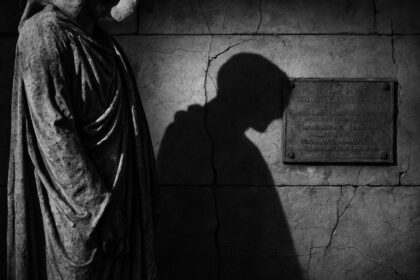In the wake of upcoming local elections, Biplab Kumar Deb has accused CPI(M) of functioning as a foreign proxy for China, further deepening ideological divides and shaping the state’s political narrative.
Tripura’s political landscape is again ignited with controversy as former Chief Minister and current Bharatiya Janata Party (BJP) MP Biplab Kumar Deb has levelled serious accusations against the Communist Party of India (Marxist) — claiming the party has become a proxy for Chinese interests. During an outreach event in Agartala, Deb expressed doubts about the CPI(M)’s relevance, portraying it as an entity that has strayed from its national commitments.
Deb remarked, “The CPI(M) has no presence or relevance in modern-day China. But here in India, they pretend to be the torchbearers of Chinese ideology. In reality, they act more like brokers for China than a party committed to Indian interests.” His strong critique comes as the BJP gears up for local elections, further intensifying the already heated political rhetoric. He accused the CPI(M) of failing to deliver meaningful socio-economic reforms during its rule spanning over twenty-five years, arguing that their legacy is one of impoverishment with no significant infrastructure or employment generated during their tenure.
This latest attack fits into a broader narrative promoted by the BJP, casting the CPI(M)’s emphasis on external ideologies as detrimental to national development. Deb argued that the Modi government’s foreign policy exemplifies India’s independent stance in global affairs, in contrast to what he termed the CPI(M)’s “foreign obsession.” His remarks have resonated particularly among BJP supporters, who have echoed sentiments of national pride and accused the CPI(M) of being antiquated and disconnected from contemporary Indian society.
Reactions to Deb’s comments have been swift and varied. While many BJP loyalists rallied in support of Deb’s assertions, CPI(M) leaders condemned his statements as desperate attempts at relevance amid governance challenges faced by the BJP. A senior CPI(M) figure countered, stating, “Biplab Deb is trying to stay politically relevant by attacking us. But people remember his time as CM and the chaos that followed.” Such counterclaims suggest a growing concern within the CPI(M) about its dwindling influence in the wake of the BJP’s rise, especially following the significant loss they faced in the 2018 Tripura Assembly elections.
The diminishing influence of the CPI(M) has sparked broader analyses regarding the changing dynamics in Indian politics. Once a formidable force in Tripura, the CPI(M) has struggled to regain its footing, facing multiple electoral defeats since the BJP took control. Observers note that Deb’s comments may reflect a calculated strategy by the BJP not only to consolidate its power in the state but also to propagate a national discourse that characterises Left parties as relics of a bygone era, overly influenced by foreign ideologies.
At the heart of Deb’s rhetoric lies a clarion call to the youth of Tripura. He urged them to reject any “ideological slavery to China,” framing the BJP’s governance as synonymous with India’s progress. “CPI(M) may try to confuse people with its propaganda, but Tripura is not going back. We will not allow agents of a foreign ideology to slow down our development,” he declared emphatically.
As the political backdrop continues to shift with upcoming elections, the tension between the BJP and the CPI(M) reveals deep-rooted ideological divides that not only shape local governance but also reflect larger national narratives. In a state where socio-economic conditions remain a focal point for voters, the BJP seems determined to enhance its legitimacy by portraying itself as a champion of national interests.
 Reference Map:
Reference Map:
Source: Noah Wire Services
- https://boroktimes.com/tripura-mp-biplab-deb-accuses-cpim-of-pro-china-bias/ – Please view link – unable to able to access data
- https://tripuratoday.in/2025/03/03/biplab-deb-slams-cpim-calls-communism-a-machine-to-destroy-youth-and-women/ – Former Tripura Chief Minister and BJP leader Biplab Kumar Deb criticised the Communist Party of India (Marxist), labelling Communism as a ‘machine that destroys youth and women’. Speaking at a BJP event in Bishalgarh, Deb accused the CPI(M) of dividing people along religious and caste lines, hindering opportunities for youth and women, and failing to bring economic growth during their 35 years in power. He contrasted this with the BJP’s development initiatives, including better roads, medical colleges, and digital connectivity, and urged people to reject the CPI(M)’s influence in the state.
- https://www.hindustantimes.com/cities/others/communists-came-to-power-in-tripura-due-to-support-from-congress-biplab-deb-101711949035584.html – Biplab Kumar Deb, former Tripura Chief Minister and BJP candidate, alleged that the Communist Party of India (Marxist) (CPI(M)) gained power in Tripura due to support from the Congress party. Addressing a campaign in Nalchar, Deb claimed that Congress leaders Samir Ranjan Barman and his son Sudip Roy Barman openly aligned with the CPI(M) for personal interests, and that Congress president Ashish Kumar Saha had a ‘Communist gene’. He criticised the CPI(M) for failing to improve the state’s socio-economic conditions over 25 years and urged voters to make informed choices in the upcoming elections.
- https://tripurachronicle.in/local-news/biplab-kumar-deb-urges-voters-to-bid-farewell-to-communist-and-congress-parties/ – Former Tripura Chief Minister Biplab Kumar Deb urged voters to move away from the Communist Party of India (Marxist) (CPI(M)) and the Congress party, describing them as adversaries to the state’s people. Speaking at an election rally in Raima Valley, Deb accused the CPI(M) of neglecting the welfare of the people, particularly indigenous communities, and claimed that the era of Communist rule in Tripura had ended. He highlighted the BJP’s commitment to the development of indigenous communities and called for a resounding victory for BJP nominee Kriti Singh Debbarma in the upcoming East Tripura Lok Sabha elections.
- https://www.telegraphindia.com/north-east/cpim-responsible-for-mushrooming-of-regional-parties-in-tripura-biplab-kumar-deb/cid/1962807 – Biplab Kumar Deb, former Tripura Chief Minister and BJP leader, alleged that the Communist Party of India (Marxist) (CPI(M)) was responsible for the emergence of regional parties in Tripura. Speaking at a rally for BJP candidate in the Dhanpur Assembly bypoll, Deb stated that regional parties like TUJS, INPT, and IPFT were formed due to CPI(M)’s prolonged exploitation and harassment. He also criticised former Chief Minister Manik Sarkar for not addressing the issues of Reang refugees from Mizoram in 1998, leading to their displacement.
- https://tripuratimes.com/ttimes/biplab-kumar-deb-misinterpreted-cpim%E2%80%99s-poll-manifesto-jiten-over-%E2%80%98compromising-national-security%E2%80%99-remark-15359.html/ – Jitendra Chaudhury, CPI(M) state secretary and leader of opposition, responded to Biplab Kumar Deb’s allegation that the CPI(M)’s poll manifesto advocated compromising national security by eliminating nuclear weapons and removing military bases. Chaudhury dismissed Deb’s claims as a misinterpretation aimed at misleading the public. He clarified that the CPI(M) manifesto calls for a nuclear-weapons-free world but does not propose eliminating India’s nuclear arsenal or military bases, emphasising the party’s commitment to national security.
- https://thehindu.com/elections/lok-sabha/ex-cm-and-bjp-candidate-biplab-kumar-deb-says-congress-turncoat-leaders-have-no-ideology/article68072887.ece – Biplab Kumar Deb, former Tripura Chief Minister and BJP candidate, criticised Congress leaders who joined the BJP, accusing them of lacking ideology. He highlighted the BJP’s commitment to national strength and the welfare of the people, contrasting it with the Congress and CPI(M)’s differing election pledges. Deb specifically mentioned the CPI(M)’s manifesto, alleging it suggests relieving the country of its nuclear arsenal and aligning with positions of Pakistan and China, and expressed confidence that voters would reject such approaches in the elections.













